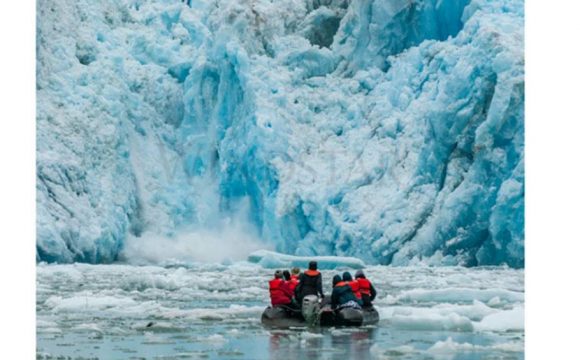Following the recent lifting of UK flight restrictions to Sharm el Sheikh, and the ‘subsequent rush’ of operators to resume selling holidays to the resort, The Reef World Foundation and the Chamber of Diving and Watersports have issued reminders about the actions needed to protect the country’s precious coral reefs.
With an expected influx of tourism to the region, Chloe Harvey, Director at The Reef-World Foundation, said: “Everyone has a part to play, which is why we’re asking tourists to reduce their negative impact on coral reefs by following a few simple guidelines, as outlined by the Green Fins Code of Conduct.
“Reducing diving and snorkelling-related damage to coral reefs helps make them more resilient to other stressors such as those associated with climate change. If we all make an effort to act as a responsible tourist, we can protect Egypt’s beautiful coral reefs for many years to come.”
The Green Fins guidelines recommend that divers and snorkelers:
- Don’t step on coral: Divers and snorkelers can easily break coral with their feet or fins. This can cause injury and kill coral reefs
- Don’t touch or chase marine life: This can lead to stressed and scared animals that will swim away, leaving nothing for guests to see. Sharks species, in particular, should be left alone as our presence can influence and disrupt their natural behaviour
- Don’t stir the sediment: Careless divers and swimmers who stir up the sand can cause damage and spread disease on reefs
- Do not buy souvenirs of shell, coral or other marine life: This encourages people to take marine life from the ocean, removing the beautiful creatures people have travelled so far to see
- Do not take marine life – dead or alive: Removing species that would normally break down and be recycled into the sea leaves other animals without nutrients and elements they need for growth. Even empty shells on the beach play an important role in the wider ecosystem. Take nothing but pictures, leave nothing but bubbles.
- Don’t litter: Throwing trash in the ocean kills marine life, poisons seafood and can cause injury – minimise your use of single-use plastics and recycle or dispose of your litter properly. You can also pick up any litter you see in the ocean or on the beach
- Don’t wear gloves: Gloves can encourage tourists to touch things underwater, which could cause fatal injury and damage marine life. In Egypt, the use of gloves is not permitted
- Don’t feed the fish: This can make fish sick or aggressive, especially with sharks, causing them to attack and injure humans. Fed fish are also more likely to leave their nests empty and vulnerable to predators
- Dispose of litter responsibly: Throwing trash in the ocean kills marine life, poisons seafood and can injure tourists. Encourage recycling and proper disposal
- Wear reef-safe sunscreen: Some chemical components in sunscreen – including Oxybenzone and Octinoxate – may have a negative impact on coral reefs. Help protect coral from harmful chemicals by using alternatives which are reef-safe and covering up with clothing when in strong sunshine.
- Report environmental violations: If you see any destructive practices or violations of environmental laws, tell your dive guide, dive operator or government officials. By informing key authorities, you are being part of the solution as your actions can lead to appropriate action.
- Participate in conservation projects: By taking part in conservation projects, you can have a positive effect on the environment and help educate others.
Hesham Gabr, Chair of the Chamber of Diving & Watersports, said: “We are lucky to be the custodians of a naturally rich and beautiful environment. It is so important that we protect and preserve the Red Sea’s exquisite marine life for future generations. As such, we’re appealing to Egyptian dive and snorkel operators to learn how to improve their environmental best practices and reduce their negative impact on coral reefs by signing up to Green Fins.”
















